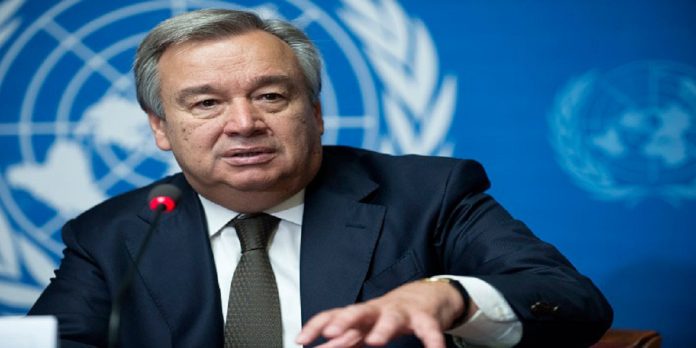NEW YORK: The United Nations Secretary-General (UNSG), Antonio Guterres, is scheduled to participate in a high-level roundtable discussion on December 2nd (tomorrow). The roundtable will bring together heads of state from various mountain countries.
Antonio Guterres will be in attendance alongside Pushpa Kamal Dahal, the Prime Minister of Nepal, as well as various heads of state and delegations, including Xavier Espot Zamora, the Prime Minister of Andorra, Zheenbek Kulubaev, the Minister of Foreign Affairs of the Kyrgyz Republic, and Uros Vajgl, the State Secretary of Slovenia.
The roundtable discussion is a continuation of Secretary-General Guterres’ recent visit to the Himalayas. In this region, the far-reaching consequences of climate change pose a significant threat to a quarter of the global population.
Additionally, the importance of mountains was acknowledged during the COP28 President’s Opening Plenary.
As a result, it was decided that this issue should be addressed under the Nairobi work programme.
The roundtable discussion also aligns with the submission made by the International Centre for Integrated Mountain Development (ICIMOD) during the high-level event on the Warsaw International Mechanism on Loss and Damage, which was convened by the UNFCCC Adaptation Division on Friday evening.
Izabella Koziell, the Deputy Director General of ICIMOD, will emphasize the critical need to prioritize the Hindu Kush Himalaya region for compensation related to Loss and Damage.
Koziell will advocate for an expedited increase in funding to enhance our understanding of both rapid and slow onset events.
This will aid in assisting the significant population sizes, specifically 240 million individuals residing in mountainous regions and a billion individuals residing downstream, who are exposed to these events.
The objective is to facilitate their adaptation to such circumstances and provide appropriate compensation to affected communities for any losses and damages incurred.
During the upcoming Government of Nepal event scheduled for Saturday, Koziell will deliver a presentation encompassing the latest research findings regarding the consequences of cryosphere change on the Himalaya region.
The presentation will include a reference to ICIMOD’s report, which highlights the potential loss of up to 80% of the current volume of glaciers in the region by the conclusion of this century.
According to Koziell, mountain regions exhibit a high degree of sensitivity to environmental change. The rate of melting of the Himalayan glaciers in the 2010s was observed to be 65 percent higher than that of the previous decade.
This accelerated melting process has resulted in the emergence of various interconnected climate risks.
The frequency and intensity of disasters in the region are on the rise, posing significant challenges for communities, especially those that are most vulnerable.
These communities are finding it increasingly difficult to manage the impacts of droughts, floods, and extreme weather events. Furthermore, these hazards are causing significant depletion of investments in crucial infrastructure, such as hydropower facilities and road networks.
The rapid rate of climate change occurring throughout the Himalayan mountain range is resulting in significant economic losses. It is imperative to provide compensation to those who have been disproportionately affected but bear the least responsibility.
Furthermore, it is crucial for the leaders convened in COP28 to take immediate action in reducing emissions to prevent further catastrophic consequences in one of the world’s densely populated regions.
The delegates will also have the opportunity to receive a presentation from Pam Pearson, the Director of the International Climate Cryosphere Initiative (ICCI), regarding the organization’s forthcoming 2023 State of the Cryosphere report.
According to the report, it is evident that all frozen regions of the Earth will undergo irreversible harm with a mere 2°C increase in global warming.
According to Pearson, it is imperative to adhere to the 1.5°C limit in order to avert a series of escalating catastrophic events, economic ramifications, and increasing political instability.
“In light of the climate disasters and ice loss experienced in 2023, it is evident that there is an immediate and pressing need for global leaders to acknowledge that a two-degree increase in temperature is excessively high for the Earth’s cryosphere,” stated Pam Pearson, Director of ICCI.
According to the current significant report, it is imperative that we exclude the possibility of a 2°C increase.
Read more: Climate inaction’ heightens risks to Global South, including Pakistan







